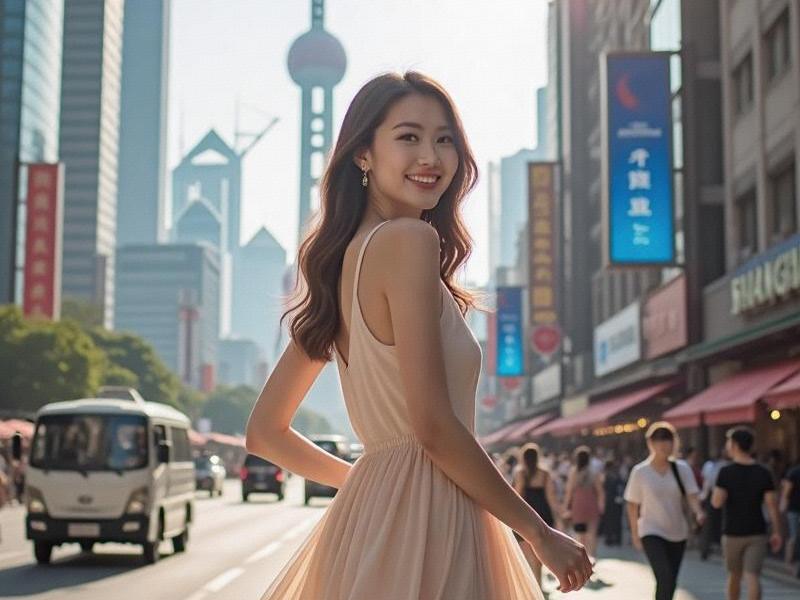
The glow of LED cherry blossoms illuminates private rooms where Shanghai's elite entertain clients with holographic karaoke performances, while AI mixologists craft bespoke cocktails in the lounge. This is the new face of Shanghai's entertainment clubs - spaces where technology and tradition merge to crteeaunprecedented nightlife experiences.
From KTV to K-Culture Hubs
Gone are the days when Shanghai's entertainment clubs were simply venues for karaoke and drinks. The modern "Super KTV" concept has transformed these spaces into multi-sensory entertainment complexes:
- 5D immersive theaters with scent and motion effects synced to music videos
- AI vocal coaches that analyze singing technique in real-time
- Augmented reality dance floors that transform any guest into a backup dancer
- Private rooms with adjustable acoustics for perfect sound quality
Industry leader PartyWorld has invested ¥800 million in upgrading their flagship Nanjing Road location, which now features themed floors ranging from 1920s Shanghai jazz to futuristic cyberpunk aesthetics.
The Technology Revolution
Shanghai's clubs lead China in nightlife technology adoption:
1. Facial recognition entry systems linked to membership databases
上海龙凤论坛419 2. Smart tables with built-in ordering systems and interactive games
3. Emotion-reading lighting that adjusts to the room's mood
4. Voice-controlled room environments (temperature, lighting, music)
"We're not just selling rooms anymore," explains Vincent Li, CEO of New Star Entertainment. "We're selling personalized entertainment experiences powered by data and technology."
Cultural Fusion in Club Design
The most successful venues blend international influences with Chinese elements:
- The Bund's "Dragon Phoenix Club" features Ming Dynasty décor with EDM lighting
- "Jade Lounge" in Xintiandi serves craft cocktails in porcelain vessels
- "Cloud Nine" offers traditional tea ceremonies alongside molecular mixology
This fusion extends to entertainment programming. At Club 88, guests can enjoy Peking opera performances remixed with electronic beats by resident DJs.
上海夜生活论坛 The Business of Entertainment
Shanghai's night economy contributes approximately ¥60 billion annually, with entertainment clubs accounting for 38% of revenue. The market has become increasingly segmented:
- Luxury clubs catering to high-net-worth individuals (average spend ¥8,000-15,000 per night)
- Mid-range family-friendly entertainment centers
- Youth-oriented "micro clubs" with pay-per-minute pricing models
Regulation and Innovation
Recent government policies have encouraged healthier entertainment options:
- Mandatory closing times extended to 4am in designated zones
- Stricter alcohol service regulations
- Required cultural content quotas (minimum 30% Chinese music in KTV systems)
上海品茶论坛 In response, clubs have innovated with:
- Wellness rooms offering oxygen bars and massage services
- "Morning clubs" serving breakfast and coffee with acoustic performances
- Corporate team-building packages with professional facilitators
The Future of Shanghai Nightlife
As Shanghai prepares to host the 2026 World Expo, club owners are anticipating new opportunities:
- Augmented reality "pop-up clubs" in partnership with fashion brands
- Membership-based social clubs with co-working spaces
- AI-powered matchmaking services for networking events
"The next generation of Shanghai clubs won't just be places to sing and drink," predicts nightlife consultant Emma Zhao. "They'll become full-service social ecosystems that blend entertainment, business networking, and cultural exchange."
From the jazz clubs of the 1930s to today's high-tech entertainment palaces, Shanghai's nightlife continues to evolve while maintaining its distinctive cosmopolitan flair. The city's entertainment clubs remain spaces where business relationships are forged, cultures intersect, and the boundaries of leisure are constantly redefined.
